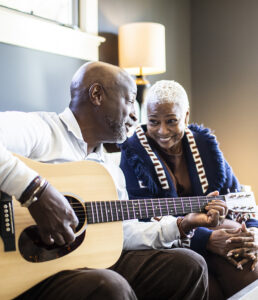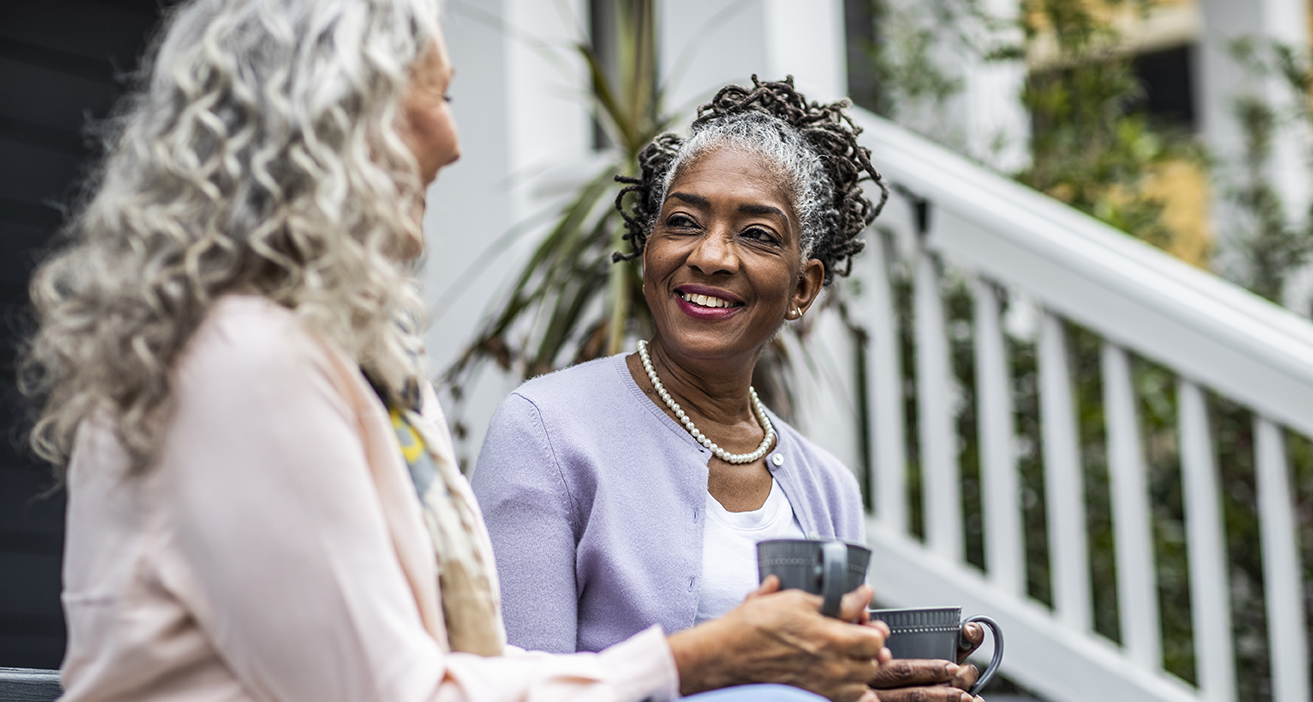With lockdowns and social isolation becoming a health necessity during the COVID-19 pandemic, many of us lost touch with our social circles – and haven’t returned to our pre-pandemic social lives. Even with technology giving us new ways to connect through text, video chat and social media, loneliness is on the rise in the United States, according to data from the National Library of Medicine.
You can begin to make small changes in your life to help you find connections, build relationships and get back to feeling like yourself.
It’s natural for humans to seek connections with others. We want to feel accepted, welcomed and a part of something larger than ourselves. If you feel like you’ve lost touch with others or like you’re becoming isolated and lonely, it may be time to make some small changes and get back on track.
The Importance of Connection
Social connections can affect how we feel about our lives, but they can also impact our health. According to the National Library of Medicine, numerous studies have shown that social connectedness directly impacts our mental and physical health and has been shown to help:
- Reduce blood sugar levels
- Maintain a healthy body mass index
- Improve cancer survival
- Mitigate post-traumatic stress disorder (PTSD) symptoms
- Decrease cardiovascular mortality
- Improve overall mental health
Loneliness is also linked to a wide range of mental and physical health issues such as:
- Increased risk for dementia
- Increased risk for heart disease and stroke
- Higher rates of depression and anxiety
- Higher rates of substance abuse
Loneliness Within Veteran Communities
According to several studies, including one from the National Library of Medicine, more than half of all Veterans report feeling lonely. While each of us has a different story, certain factors can lead Veterans to become disconnected or isolated, including:
- The transition to civilian life – In the military, you have structure, routine and a group of people around you with a shared purpose. When you leave the military, you may think no one understands what you’ve been through, or like you’ve lost your purpose.
- A loss of an important relationship – If you’ve experienced the death of someone close to you or if you’ve gone through a divorce or a move that has changed the structure of your family, you may feel like you’ve been left on your own.
- A mental health struggle – With PTSD, depression and other mental health issues, it can be hard to open up and let other people in. It can feel safer to isolate yourself.
- A lifestyle that doesn’t make it easy to socialize – If your health makes it hard for you to get out and meet others, or if you’re a full-time caretaker, or if your home is in an isolated area, it can feel like you’re stuck and alone.
Any of these things can make it easier to withdraw and avoid the people and activities you would usually enjoy, but you don’t have to accept being lonely. You can begin to make small changes in your life to help you find connections, build relationships and get back to feeling like yourself.
10 Ways to Conquer Your Loneliness
- Think about what you want from your relationships. Is it a sense of purpose? Someone to share old military experiences with? A physical outlet? Once you know what you’re looking for, try to find something that gives you what you need.
- Start small. If joining a group seems overwhelming, start with smaller steps that seem more manageable. For example, identify one person you could reach out to or one place to visit that might encourage you to socialize. As you gain confidence, you may become more willing to reach out.
- Make a point to stay in touch with others. If you live far away from family, old military friends or others you care about, set aside some time to reconnect. Set up video chats, send cards for holidays or call a different person you care about each week.
- Use social media with a purpose. Spending hours online looking at other people’s happy moments can leave you feeling more alone and unhappy. Use social media in a healthy way – to connect to others, join groups that you’re interested in, and play games with friends and family.
- Search your community for new ways to get involved.
- Find meetup groups and others who are interested in the same activities you are. Find a group to hike with, a group that tries new restaurants or any other idea you might have. Chances are, there are others looking to connect as well.
- Connect with other Veterans. Your local Department of Veterans Affairs (VA) is a good place to start. Many VA locations have a social worker on staff who can help you make connections.
- Use your hobbies. If you like to play sports or work on cars, try to find others who do as well. Having a shared hobby can make it easier to connect. If you don’t have a hobby, think of something new to try like cooking or gardening.
- Find a volunteer opportunity. Volunteering can make you feel connected to others, help you find a purpose and boost your overall mood. Visit seniors, work in a soup kitchen, spend time at an animal shelter or work with a Veterans group. Check out the article TriWest Employees Give Back in Meaningful Ways to get some inspiration and ideas.
- Consider adopting a pet or spending time with animals. Animals can be a source of comfort and friendship and may help lower your stress levels.
- Make good lifestyle choices. Your mental health is impacted by your overall physical health. Getting outside, exercising regularly, getting enough sleep and maintaining a healthy diet can all contribute to making you feel more energized and positive about your life.
- Be kind to yourself. If you’re constantly telling yourself you don’t belong or that you can’t make friends, chances are you’ll start to believe it. Be kind to yourself and know that you have something worth sharing with others.
- Get help. If you’ve gone through a transition, a divorce or another big life event, you may need additional support to help you sort out how you’re feeling. Reach out to your health care provider to get recommendations for help or check out the resources below.
Resources
- The National Institute on Aging provides information and resources related to loneliness and social isolation, especially in older people.
- Make the Connection has an entire area of its website dedicated to Social Withdrawal and Isolation. Listen to other Veterans share their stories of overcoming loneliness.
- VA offers a Whole Health approach to health care that understands the role social connections and relationships play in your overall health and wellness.
- VA also offers several resources that relate to loneliness and isolation, including
- Veterans coffee socials: Start your own group or find out if your local VA has one you can attend.
- Mental health apps for Veterans: Search the app store to find a wide range of resources for improving your relationships, dealing with PTSD and much more.
- Resources for transitioning Service members: Connect with programs such as Solid Start, which provides phone calls and outreach to Service members as they transition to civilian life.
- Compassionate Contact Corps: Learn more about the program that connects isolated Veterans with volunteers who do weekly phone calls and check-ins.







